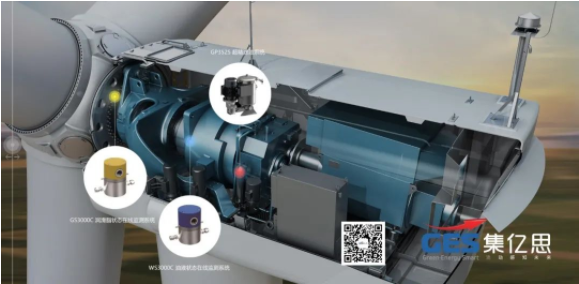
Background
Although the wind power industry has developed rapidly in recent years, the reliability of the gearbox has been improved, and the frequency of failures has been reduced, due to the special installation environment of the wind turbine, it is often exposed to extreme weather conditions, experiencing abnormal temperature, humidity and load tests, and there are various pollution risks around. Therefore, sometimes it is still necessary to stop the machine to eliminate the gearbox fault. In serious cases, it is even necessary to lift the gearbox off the tower or return it to the factory for repair. The relevant costs vary from 300000 to 1000000 yuan depending on the damage. Moreover, due to the high hoisting cost and long processing time, the fan must be shut down, which seriously affects the efficiency of the wind farm. Therefore, improving the reliability of the power transmission system and prolonging the service life of the gearbox are critical to reducing the operating cost of the unit.
The main gearbox is the core component of wind turbine, with a design life of more than 20 years. According to statistics, 80% of all gearbox faults are related to oil pollution. Lubricating oil in the gearbox lubrication system plays an important role in reducing friction between gearbox friction pairs, reducing wear, oil temperature, etc., to maintain the working efficiency of the gear mechanism and extend its service life. Therefore, the performance and status of the lubricating oil of the fan unit will directly affect whether the gearbox can operate safely and stably for a long time, which is an important guarantee for the reliable operation of the gearbox system.
This article is limited by space, only from the perspective of wear and impurity particle pollution, 0.1 μ M The necessity of fine filtration shall be analyzed simply, and the comprehensive influence caused by other factors such as water, acid value and paint film shall not be considered temporarily.
zero point one μ M Value of filtration precision
The influence of particles with different diameters on the system is quite different. It can be seen from Figure 1 that the particle size of more than 90% of particles is 0~5 μ M, where < 1 μ M accounts for more than 70%. At present, the absolute precision of most offline ultra precision filtration on the market is 3 μ M level. However, the width of the oil film boundary is about 0.5 μ m. The most vulnerable. But close to 0.5 μ The particles of m are the most destructive. If particles of this size can not be controlled to break through the oil film, it will eventually lead to exponential growth of snowball effect.
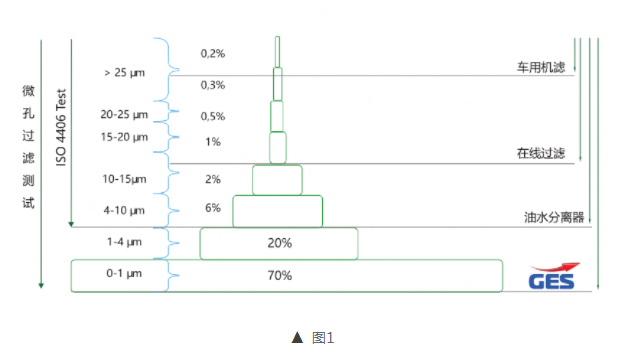

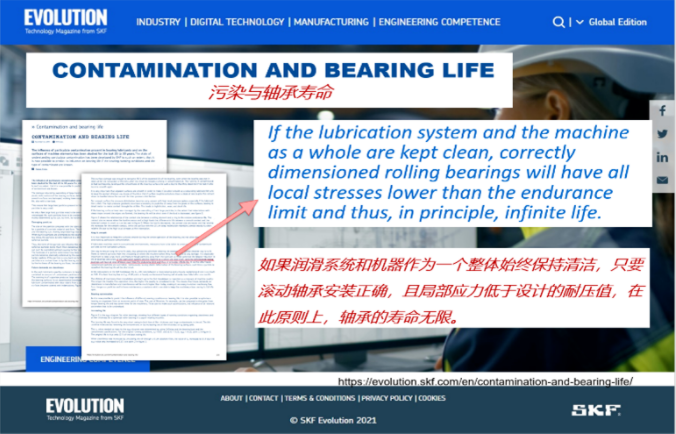
Wear and particle pollution in oil system
For wind turbine gearbox, particles with relatively high hardness, such as abrasive particles generated by tooth surface wear, are the most harmful. But a large number of particles, no matter how hard, are fatal to bearings. Another effect of solid impurity particles is on the life of gear oil itself. Metal particles are often catalysts, which can accelerate the oxidation of oil products. The paint film, sludge and other acidic substances produced after oil oxidation will in turn cause new corrosion to metal parts. At the same time, the increased viscosity of the oil after oxidation will also increase the heat of the gearbox, resulting in poor lubrication and new wear. The following table shows the main hazards of solid particle impurities to the wind turbine gearbox.

Solid particles are an important cause of all faults in the oil system. The most harmful are particles whose net size is similar to or slightly larger than the dynamic tolerance between moving parts in the oil system. When small frictional particles such as sand and dust enter the oil system, they will flow into important machine components together with the oil and get stuck in small gaps. This will cause tiny cracks on the surface of components such as ball bearings. Load and pressure cycles can cause cracks under the surface to propagate, resulting in a deterioration of metal properties and the release of large fragments.
Excessive particles will increase the pressure of the additive package in the oil. Detergents and dispersants may run out if particulate contamination is not controlled. The way of oil cleaning in terms of particulate pollution depends on the sensitivity of machine components and the cost of failure, namely, the cost of replacing parts, the cost of downtime, safety responsibilities, etc.
Particle count and machine life assessment
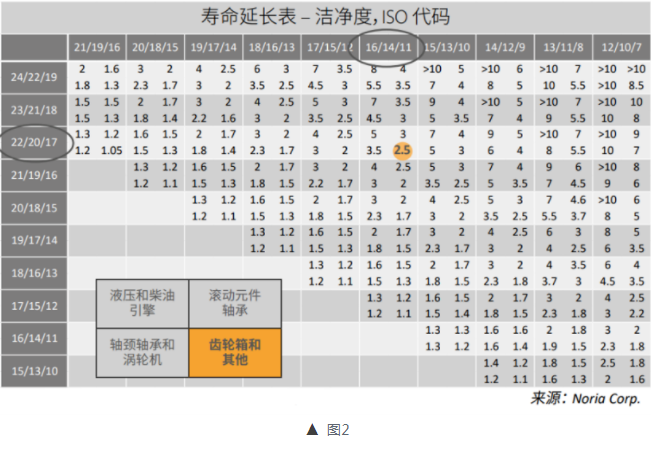
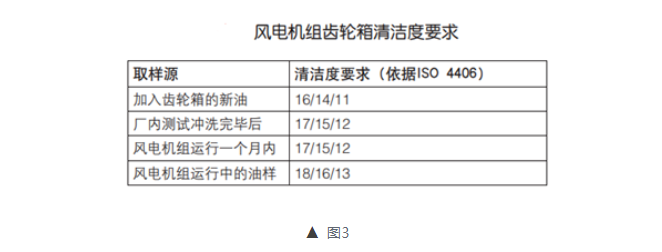
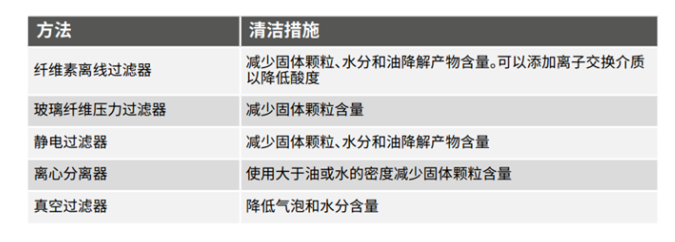
▲ Figure 4
Selection of oil filter
As efficiency and economy need to be considered, glass fiber filter (online filtering) and cellulose offline filter (offline filtering) are usually preferred. The two oil filtration technologies work best under constant conditions, that is, stable flow and pressure. The cellulose deep filter is usually placed in a separate offline loop, also known as renal circulation filtration. Under such stable conditions, it will retain most of the pollutants in the oil. The fiberglass pressure filter can be installed in the oil cooling circuit or upstream of the oil system as a full flow "last" filter. Filter type The best way to capture and retain fine particles as well as moisture and paint film is to install an offline filter. The offline filter shall operate continuously and circulate the oil in the system several times a day. For low pressure and low flow rate, extremely fine filtration accuracy (≤ 1) can be selected μ m) High density filter media. Most cellulose off-line filters use labyrinth filtration, just like oil passing through a labyrinth of several layers of cellulose. The largest particles will remain on the surface of the filter element, while smaller particles will enter the filter element and remain inside the filter material, thus ensuring a higher dirt capacity. This type of filter can also be installed in the bypass to limit the pressure of the system pump. The cellulose off-line filter can also be used to remove water in oil and oil degradation products such as sludge/paint film by absorption or merger.
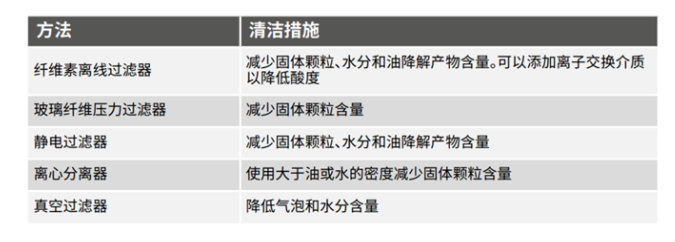
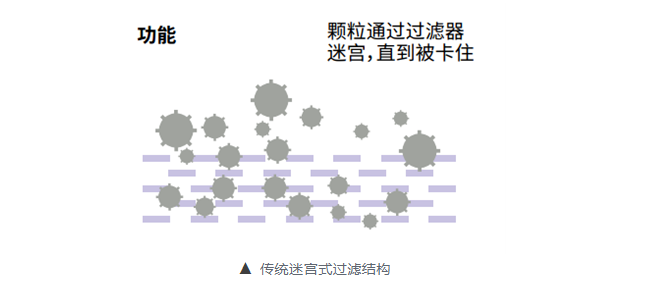
Today's leading role, Jiyisi "Woodpecker" GP3000 series offline oil filter, adopts a patented capillary special filtration structure completely different from labyrinth filtration, which can adsorb 0.1 μ M, without clogging (Fig. 5). Based on the principle of "Brownian motion", oil degradation products such as sludge and paint film are removed by polar attraction of filter media. The combination of adsorption and absorption fills each cellulose fiber with oil degradation products until the filter element is completely saturated. Effective filtering area of GES GPO filter element ≥ 1200m ², According to different conditions, it can maintain about 6 kg of pollution at most and absorb more than 2600ml of water.
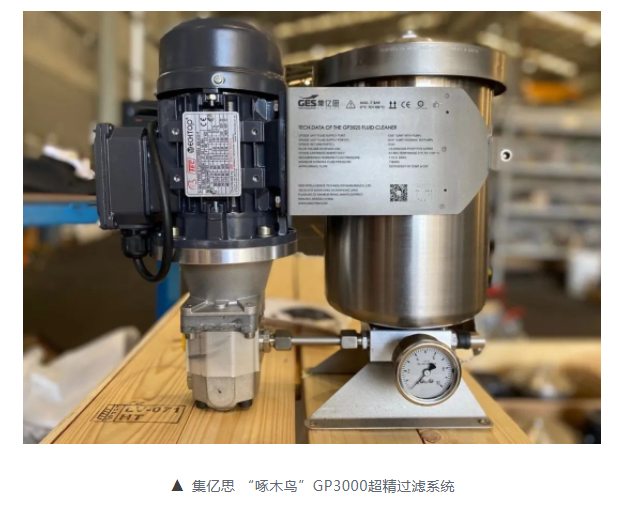
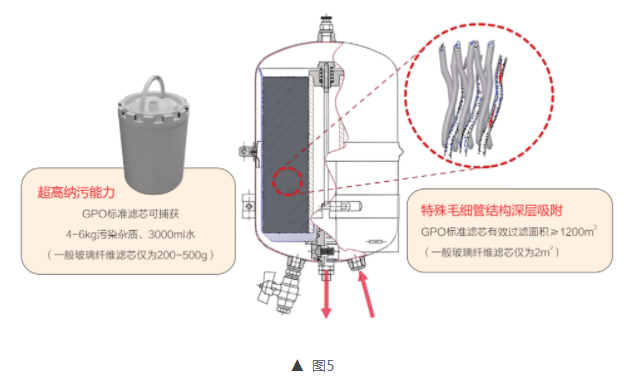
Traditional online pressure filters are usually fiberglass filters because they need to operate under high pressure and high flow conditions with few restrictions. In order to increase the surface area and reduce the pressure drop, the filter element will be wrinkled. Because they are installed behind the main system pump, they are usually very durable under conditions that are very unfavorable to the circulating flow of any filter and stop and start for many times. Therefore, it is very difficult to capture and retain fine powder particles, which is why the rating of these online filters is 10~30 μ M. However, when the filter is impacted by the pressure during stop/start, many trapped particles will be released again. Glass fiber pressure filter can only remove solid particles, and because of its relatively small filter depth and volume, its dirt capacity is limited, generally only 1~100g. In addition, it is unable to absorb water, or retain degradation products such as oil sludge and paint film. Modern fan gear oil system usually combines two cleaning systems, in which the offline filter removes pollution and the online pressure filter serves as the safety or "last" filter before important components.
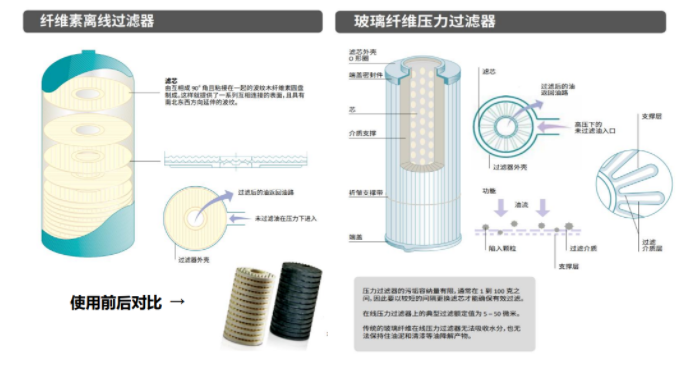
Many fan manufacturers and customers in Europe and the United States have equipped ultra precision offline filters as standard. In the national standard GB/T19073-2018/IEC 61400-4:2012 issued in September 2018 (as shown in the figure below), the addition of offline filtering systems is also recommended. It is believed that with the progress of wind turbine technology and the continuous improvement of the Owner's requirements for stable operation of equipment, high-precision offline filters will inevitably become the standard products of wind turbine generators in China in the near future.
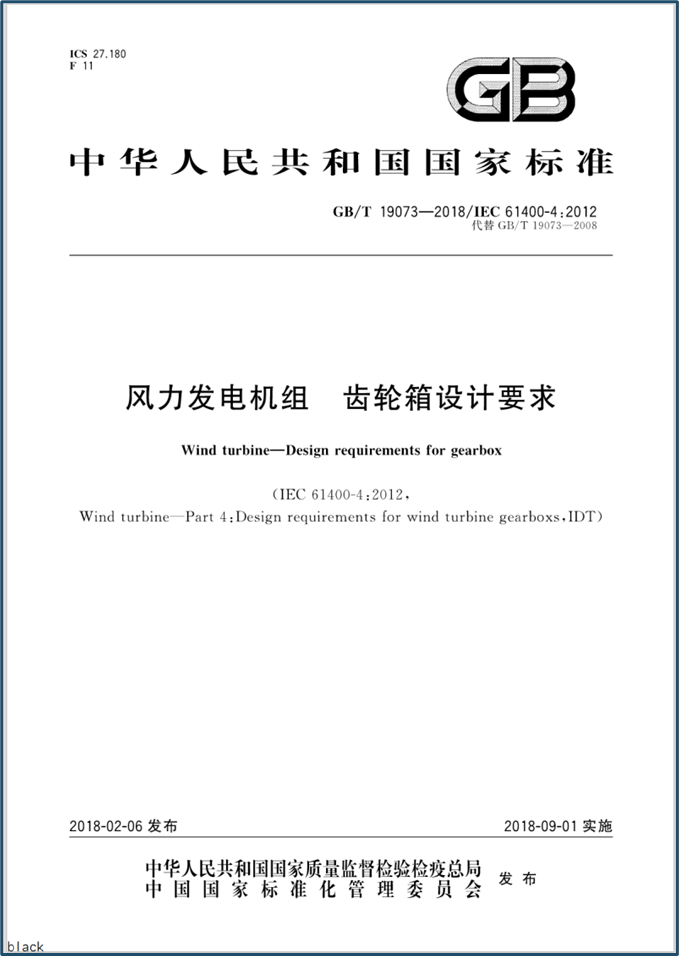

Conclusion

Jiyisi "Woodpecker" GP3000 series ultra precision filtration system, with a single filter element, can simultaneously remove contaminants, different types of particles, moisture, paint film degradation products, inhibit acid value, and has no impact on oil additives. zero point one μ M Ultra high precision filtration can make the oil products in the standard of ≤ ISO14/12/10 (NAS3) for a long time, greatly extend the service life of oil products and equipment, and reduce the loss of parts. Under special conditions, there is no need to change the oil even for life, which can save users high oil purchase costs.
The GES-GP3000 series ultra precision filtration system is used to achieve the goal of "double carbon" and zero emission of waste oil. Greatly reduce the comprehensive maintenance costs related to the whole life cycle of fans, ensure the stable operation of fans in the era of parity, and improve the power generation.